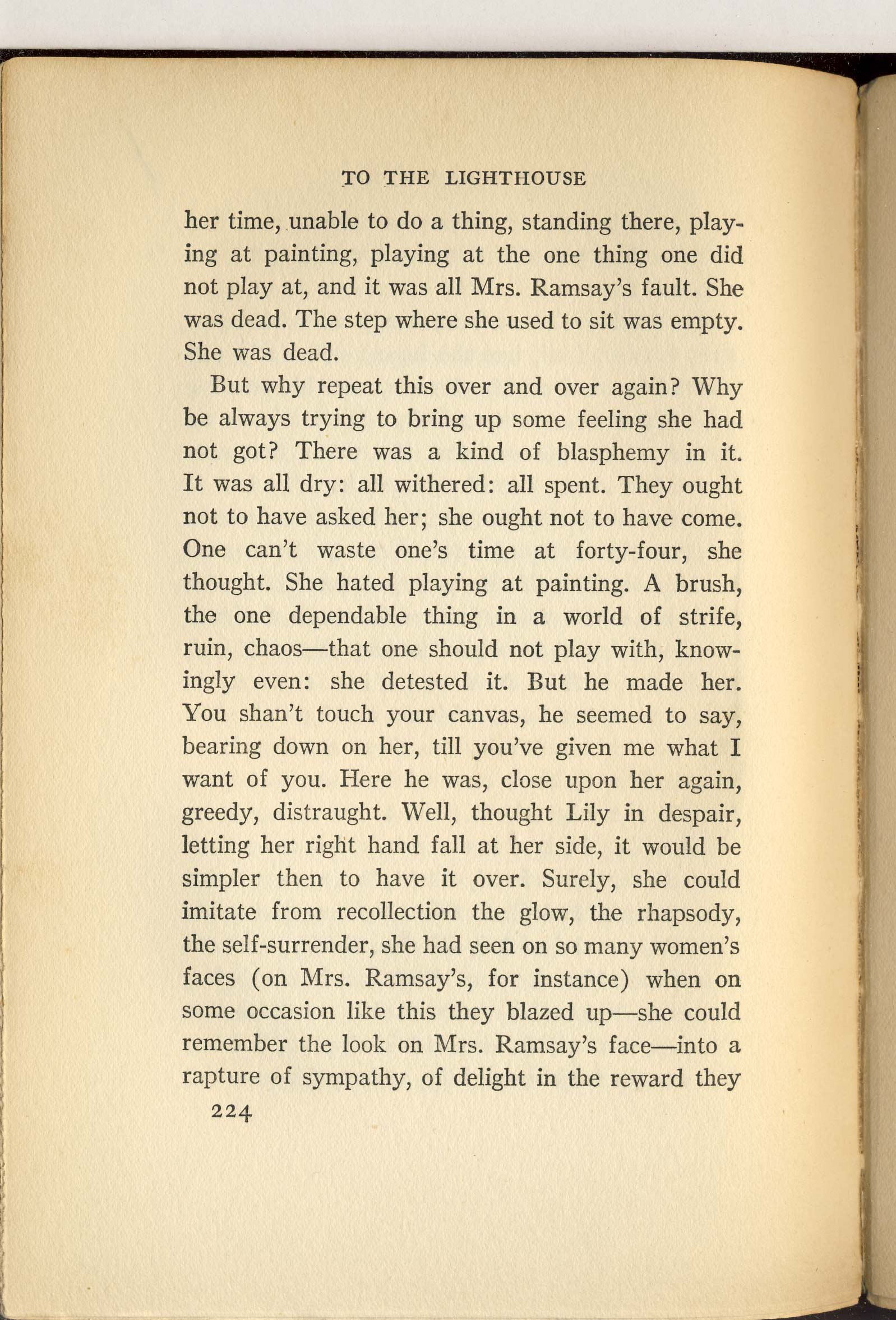
TO THE LIGHTHOUSEher time, unable to do a thing, standing there, play-ing at painting, playing at the one thing one didnot play at, and it was all Mrs. Ramsay’s fault. Shewas dead. The step where she used to sit was empty.She was dead.But why repeat this over and over again? Whybe always trying to bring up some feeling she hadnot got? There was a kind of blasphemy in it.It was all dry: all withered: all spent. They oughtnot to have asked her; she ought not to have come.One can’t waste one’s time at forty-four, shethought. She hated playing at painting. A brush,the one dependable thing in a world of strife,ruin, chaos—that one should not play with, know-ingly even: she detested it. But he made her.You shan’t touch your canvas, he seemed to say,bearing down on her, till you’ve given me what Iwant of you. Here he was, close upon her again,greedy, distraught. Well, thought Lily in despair,letting her right hand fall at her side, it would besimpler then to have it over. Surely, she couldimitate from recollection the glow, the rhapsody,the self-surrender, she had seen on so many women’sfaces (on Mrs. Ramsay’s, for instance) when onsome occasion like this they blazed up—she couldremember the look on Mrs. Ramsay’s face—into arapture of sympathy, of delight in the reward they224









